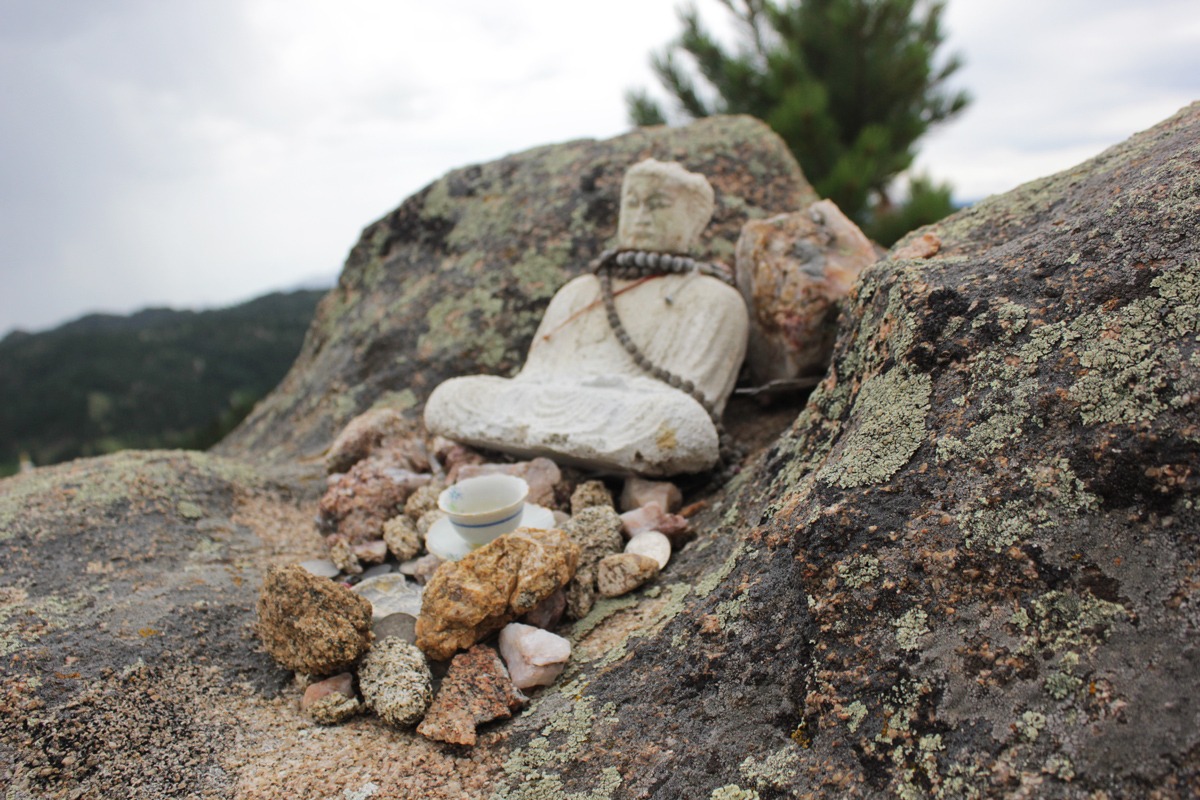How Meditation Can Help Dismantle Racism
By Kara Dansky ~~~
I don’t remember a time when I wasn’t concerned about racism, at least on a certain level. Growing up as a child, I was taught to believe that racism is wrong, and that skin color doesn’t matter.
I thought everyone believed this, and so I was taken aback when I had the following dialogue with a white friend in a sixth grade civics class in 1984:
Me: If I were old enough to vote, I would totally vote for Jesse Jackson.
Her: [Shocked expression] But he’s black!
Me: [Shocked expression] What’s wrong with black people?
Her: [Puzzled expression] Well nothing, I guess, but do you really want one of them to be President??
This is a friend I was very close to, and her words hurt. I understood at that moment that racism was very real. [This person voted for Barack Obama in 2008 and 2012, so I guess she ended up answering her own question.]
Fast forward to my professional life engaging in criminal justice reform work. I started my career as a public defender, and worked at various jobs over the years, all related to criminal justice reform. It became obvious to me through this work that anti-Black racism is rampant in the criminal justice system, and in fact throughout our society.
So by this time, I knew that some people are outwardly racist, and I knew that systemic racism was a serious issue. But it wasn’t until I started bringing anti-racism teachings into my meditation practice that I understood the deeply painful truth that I, as a white person, have my own racial conditioning and that I am partially responsible for perpetuating the horror of racism every day. It is clear to me now that the “colorblindness” that I was raised to believe in (i.e., the notion that skin color doesn’t matter) is part of the problem today. That was the crucial realization that propelled me to take action.
So how can meditation and contemplative practices be used as a tool to help us wake up to the reality of racism?
First, meditation is fundamentally an exercise in examining our thoughts. When we meditate, we bring our attention to our breathing and notice the thoughts that arise. We aren’t trying to eliminate our thoughts, but rather see them for what they are – fleeting words and images that can dissipate as soon as they arise. When we contemplate a phrase that relates to race or racism, thoughts naturally arise in response to that phrase. So meditation can be used as a tool to help us look directly at whatever thoughts we have in our minds as they pertain to race and racism.
Second, meditation allows us to slow down enough to create mental space for insight to emerge. Human beings possess a deep and profound wisdom, but we have been confused by the messages we have received about who we are (this is what Buddhists refer to as “ego”). Still, although we are confused about many things, once we are able to slow our minds down, insights often emerge from that deep and profound wisdom. When we contemplate phrases that relate to race and racism, we can obtain insights about what they really are. My insight that I have my own racial conditioning, as a white person, is an example of this.
Third, meditation provides an opportunity to sit with uncomfortable feelings. For example, we may be holding onto some anger that arose as a result of an argument we had with a co-worker. If, during meditation, a memory of that argument comes into our minds, we may tap into that anger. Meditation shows us that we are capable of sitting with that anger, maybe even relating to it. Similarly, some very uncomfortable emotions can arise when we discuss race and racism. Sometimes we feel fear, sometimes anger. Or we might feel guilt or shame. Our typical response is to shut ourselves down and avoid relating with those emotions. But by sitting with them in meditation, we can learn about them, and we can learn to move past them.
Finally, through meditation, we often tap into our hearts, which is the source of our compassion. We learn to feel the pain of racism directly in our hearts and bodies. If we are going to dismantle racism, we are going to have to tap into this compassion. We need to have compassion for those who are primarily hurt by racism, but we also need to have compassion for ourselves. We have to feel our humanness, and learn to connect with others on a human level. That is the essence of compassion.
These issues are not theoretical. White supremacy is real, and it harms all of us. I spoke with my parents’ pastor Pedro Silva several months ago about this topic, and he wrote this blog piece about our conversation. As he says, “no matter how far we’ve come, it often seems like we have even further to go. Now what if I told you that it was possible to end racism in your world this very day? What if I told you that you could bend this racism construct to your will—that even though it might feel like trying to catch a tiger by the tail—you have it within you to tame that tiger? Would you believe me? If so, great. If not; why not? If our vision is for racism to end someday, why can’t we imagine it ending this day?” Can we imagine it ending this day?
If white people truly want to fight for racial justice, we have to be willing to do our own work, with other white people. As Brittney Cooper (a Black woman and frequent contributor to Salon Magazine) says:
“White people should recognize that the best way to be good allies is to go work among their own people (white people) to create more allies. Too frequently, white allies think we are asking them to come into our communities to affirm our account of racist acts and structures. What we are really asking is for them to 1) affirm that account boldly among other white people; and 2) use their privilege to confront racial injustices when they see them happening, whether in the grocery store or in the boardroom.”
At One Thousand Arms, we think that examining our own racial conditioning is a great place to start.
Of course, it is not enough for white people to sit in a room and talk about our feelings about race and racism. There are things that we can all be doing, in our personal and professional lives, to take action to dismantle racism. Taking action is important, and we will be discussing some of the ways we can take action during this retreat. But we have to start with ourselves. We have to start by examining our own hearts and minds. Meditation can help.
About the Author


